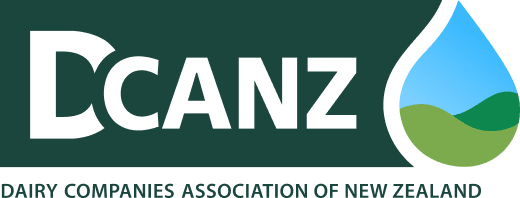WELLINGTON, NZ. 25 March 2010
The Dairy Companies Association of New Zealand (DCANZ) today submitted a brief to the US International Trade Commission on the economic effects of imports to the US under the Trans Pacific Partnership (TPP). The submission outlines the reasons DCANZ strongly supports TPP and provides an analysis of the economic benefits for the US of expanding trade across the Asia-Pacific region.
Simon Tucker, Executive Director of DCANZ, said, “TPP promises to be a solid first step for both the US and New Zealand to capitalize on the growing market for dairy products in the Asia Pacific region. We look forward to providing additional analysis on the regional dairy market to the American government as TPP negotiations progress.”
In terms of the economic effects of TPP itself on the US dairy industry, DCANZ says they must be “understood in the context of the relative size of the market in each country and the size of its dairy industry relative to the industry’s competitive positions in local and global markets.”
The DCANZ submission notes, “The US dairy industry is by far the largest among the TPP countries, producing approximately 70 percent of all the milk produced in the eight TPP nations.” New Zealand produces only 13 percent of the region’s milk, and accounted for just 2.2 percent of world dairy production in 2008. The net impact is that no producer of this size is capable of having a major negative impact on the much larger industry and analysis that suggests otherwise is misleading. Indeed using 2020 as a typical year and US Department of Agriculture (USDA) and Food and Agricultural Policy Research Institute (FAPRI) projections – and under the National Milk Producers Federation’s own analysis ? US farmer revenues under TPP would continue to be twenty five percent above current levels.”
Says Tucker, “the real opportunity for US dairy producers through TPP is continuing their strong export growth into the dynamic Asia Pacific market.” The DCANZ submission argues that “any carve out or limitation of concessions with respect to trade in dairy in the TPP will only weaken the United States’ negotiating position and ability to secure vital long-term gains for its dairy industry throughout the region.”
Lastly, the DCANZ submission observes that “New Zealand dairy producers operate in a deregulated environment” with zero government subsidies and that New Zealand has “no impediments to outside competition in the form of import tariffs, quota restrictions, or investment constraints,” as well. The dynamic New Zealand dairy market, with a number of companies competing for farmers’ milk, and their share of the global export market, provides evidence of this.
Simon Tucker
Executive Director
Tel +64 021 961 394
The Dairy Companies Association of New Zealand provides policy analysis, and advocates on behalf of, New Zealand’s dairy industry around the globe.

